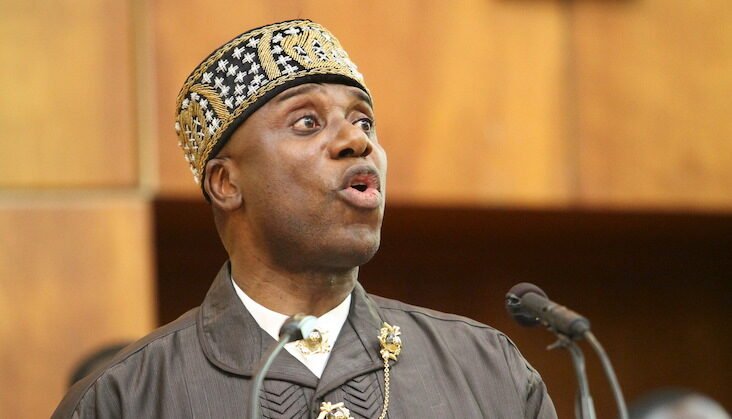- Former Minister Rotimi Amaechi revealed that Buhari initially opposed the University of Transportation in Daura due to perceived bias concerns
- Amaechi defended the Kano-Maradi rail project, stating it aimed to enhance Nigeria’s competitiveness and was not politically motivated
Former Minister of Transportation, Rotimi Amaechi, has revealed that former President Muhammadu Buhari opposed the decision to establish the University of Transportation in Daura, Katsina State.
Daura is Buhari’s hometown, and the former president was concerned about the perception of bias.
Amaechi shared this during his keynote address at the Transport Summit, which was organized by the Transportation Correspondents Association of Nigeria (TCAN).
He clarified that Buhari’s opposition was based on the belief that Amaechi favoured him by selecting Daura for the university.
According to Amaechi, Buhari did not attend the university’s groundbreaking ceremony and questioned the decision, reminding Amaechi that he had taken the university to his own village.
However, Amaechi explained that the poverty level in northern Nigeria drove his decision to place the university in Daura. He mentioned that he had also considered Zaria in Kaduna State before settling on Daura.
Amaechi also discussed the controversy surrounding the Kano-Maradi rail project, which critics claimed was politically motivated because it passed through Daura.
He defended the project, stating that it was part of an ECOWAS corridor and the design had been developed during the administration of former President Goodluck Jonathan.
The project aimed to make Nigeria more competitive with countries like the Ivory Coast, Ghana, and Benin Republic in transporting goods for landlocked states.
Amaechi further recalled how he faced resistance from some groups when introducing joint security patrols on waterways as part of the Deep Blue project.
Minister of Marine and Blue Economy Adegboyega Oyetola, represented by Mr. Yusuf Muhammad, emphasized the importance of integrating ports with roads, railways, and inland waterways to optimize trade and reduce congestion, aligning with broader goals for economic growth and environmental sustainability.
